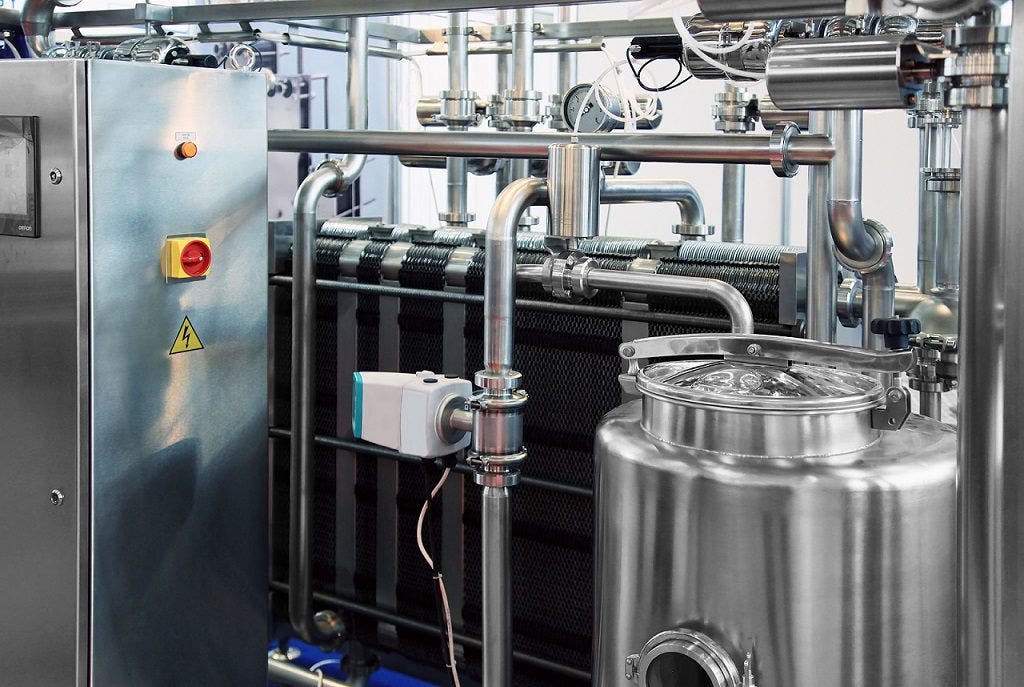ANCESTRAL EATING: Dairy, Some Notes on Pasteurisation
Actually, it's a much more interesting story than you think
Welcome back to ANCESTRAL EATING, as we resume our normal schedule with another instalment about dairy. This one’s about pasteurisation and, in particular, how it ended up happening in the United Kingdom. It’s a very interesting story, but one that’s rife for misinterpretation.
Pasteurisation was resisted strongly at every turn, for a number of different reasons, many of which are instructive for our present purposes (understanding the nutritional benefits of dairy products in their natural state). In a follow-up piece, I’ll talk about Francis Pottenger’s famous experiments with unpasteurised and pasteurised dairy.
On 10 April 1946, Lord Nathaniel Mayer Victor Rothschild rose in the House of Lords to deliver his maiden speech. The subject was unusual, to say the least. His exact words are recorded in the Parliamentary chronicle Hansard:
It will not be necessary for me to say much about the benefits of pasteurized milk or, as it is known in these days, heat treated milk. Your Lordships are aware that a large number of people die each year through drinking milk contaminated with the bovine tuberculosis germ. I will not weary your Lordships with statistics, but will merely mention that if all the members of this House were killed twice a year—and I think your Lordships will agree that this would be a matter of some gravity—the number of deaths would be of the same order as that caused in the United Kingdom by drinking raw milk contaminated with the germ of tuberculosis. I need not remind your Lordships that the number of casualties from this germ far exceeds the number of deaths; but no precise figures are available to me on this point, though the number of casualties has been estimated at about five times the number of deaths. If we put the number of deaths per year at 1,600, the number of casualties will be between 7,000 and 8,000. These casualties, which require months of hospital treatment, are a source of misery and anxiety to their families and grave expense to the State.
Of course tuberculosis is not the only disease caused by drinking raw milk contaminated with germs. Undulant fever claims an unknown number of victims each year—un-known because it is a difficult disease to diagnose—while outbreaks of typhoid and paratyphoid fever, dysentry, food poisoning, scarlet fever, and diphtheria are known to be caused from time to time by the drinking of raw milk. During the war, well authenticated milk-borne examples of each of these diseases were reported in the medical Press. Possibly the noble Lord who replies for the Government may be able to tell your Lordships if there have been any outbreaks of disease caused by drinking contaminated raw milk in the United Kingdom during 1946.
It would appear obvious from the few words I have said that considerable benefits would accrue to the population of this country by removing a perfectly clear cut source of disease and death from the population's milk; and on the assumption that this side of the case is not in dispute, I will turn to the other side which concerns the arguments put forward by the opponents of pasteurization. May I say at the start that I neither can nor shall attempt to deal with the economic aspects of this matter? Your Lordships are well aware that one of the criticisms of any scheme involving the compulsory pasteurization of milk in the United Kingdom is that it will have an adverse effect on the small producer-retailers. Your Lordships may have something to say about the relative merits of killing off numbers of the population each year and maintaining the economic interests of a relatively small section of the community, though the words "as far as is practicable" in my Motion indicate that I appreciate the difficulties of extending any scheme of heat treatment to special or rural parts of the country.
Why would a member of the Rothschild banking family take such a keen interest in the pasteurisation of milk? It’s not an unreasonable question. Many are quick to assume, because of the sinister associations of the family name, that Lord Rothschild was pursuing some secret—or not-so-secret—agenda to harm the nation’s health by depriving the people of England, Scotland, Wales and Northern Ireland of the authentic goodness of raw milk.
In all honesty, I’m not sure why Lord Rothschild chose pasteurisation as the subject of his maiden speech. His family certainly owned a lot of farmland and he had a keen interest in scientific research and zoology. What is absolutely clear, though, is that he was not responsible for the introduction of heat-treatment for milk in the UK. Pasteurisation of milk supplies was already underway on a large scale in the UK by the 1920s, for reasons we’ll get in to in just a moment, and would have spread anyway, regardless of Nathaniel Rothschild’s speech, just as it already had or would in other countries across the Western world.
If you want to read the rest of the speech, and the responses from other members of the Lords, you can click the link above and do so. Lord Rothschild’s motion was withdrawn. His only other speech was about the situation in Palestine, in the same year. Raw milk remains legal, to this day, in the UK; although its production and distribution is closely regulated by law, and pasteurised milk is consumed in vastly greater quantities.




